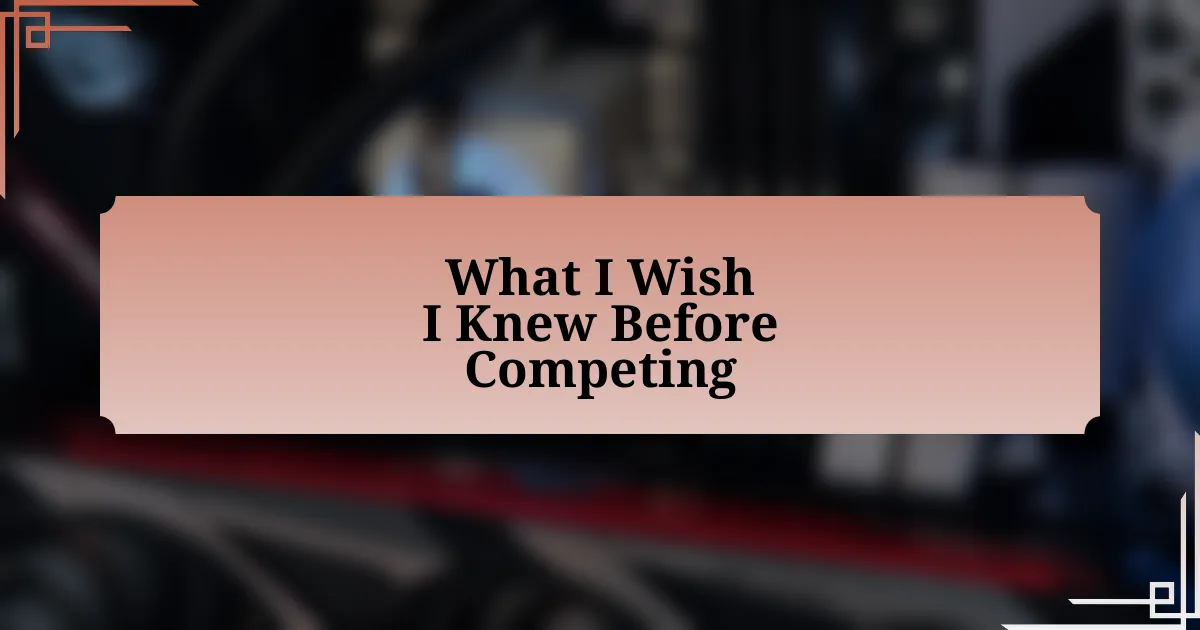Key takeaways:
- Understanding eSports involves not just gameplay, but also community dynamics and preparation for competition.
- Effective communication and teamwork are vital for success in team-based eSports environments.
- Mental resilience and a balanced approach are essential for handling the pressures of competition.
- Embracing feedback and focused practice can significantly improve individual performance and overall gameplay.
Author: Evelyn Hartley
Bio: Evelyn Hartley is an award-winning author known for her compelling narratives and richly drawn characters. With a background in psychology and literature, she weaves intricate tales that explore the complexities of human relationships and the intricacies of the human psyche. Her debut novel, “Whispers in the Dark,” was celebrated by critics and readers alike, earning her a dedicated following. Evelyn’s work has been featured in various literary journals and anthologies, and she frequently speaks at writing conferences and workshops. When she’s not writing, she enjoys hiking in the mountains and volunteering at her local animal shelter. She resides in Seattle with her two rescue dogs, Luna and Milo.
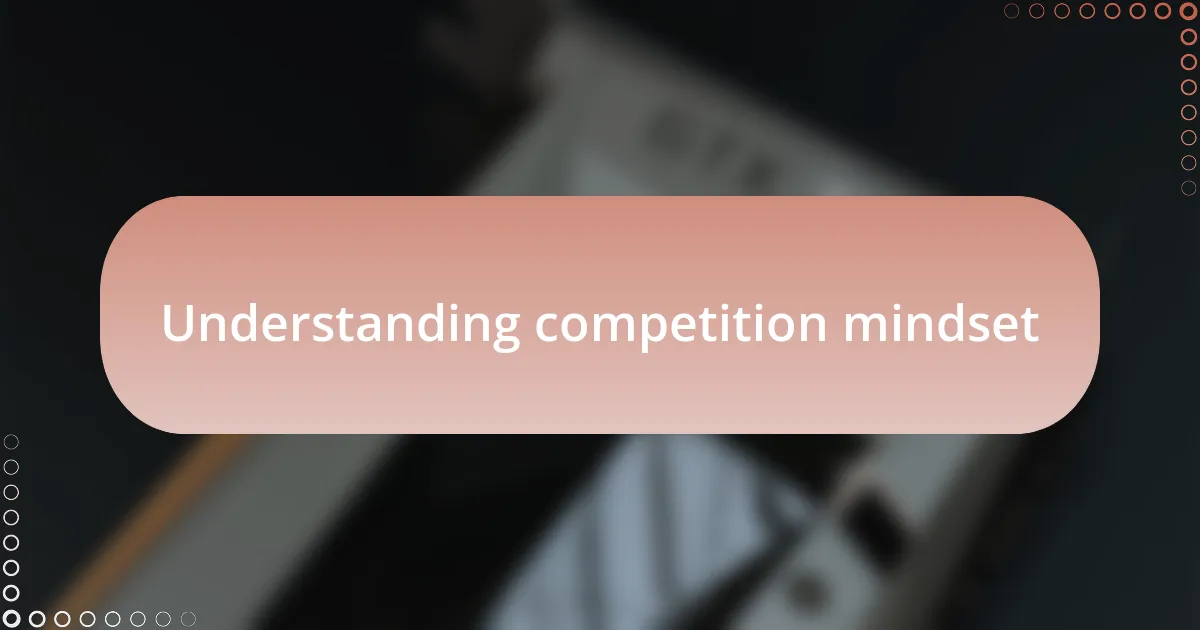
Understanding eSports gaming
Understanding eSports gaming is more than just knowing the games; it’s about grasping the culture, the community, and the competitive landscape. I remember my first time watching a major tournament—there was an electric atmosphere that just drew me in. Have you ever felt that rush when the underdog pulls off a stunning victory? That’s the magic of eSports.
As players, we dive into a world where strategy, teamwork, and skill converge. It’s fascinating how different genres, from first-person shooters to multiplayer online battle arenas, foster unique styles of play. I often reflect on how learning the mechanics of a game can feel like a second language, and yet, it’s incredibly rewarding when everything clicks.
There’s a deep-seated passion that fuels the eSports community. I’ve seen friendships forged in the heat of competition and support networks grow beyond the gaming world. Isn’t it amazing how a shared interest can cultivate connections that last a lifetime? Understanding this landscape is fundamental for anyone looking to compete and thrive in eSports.
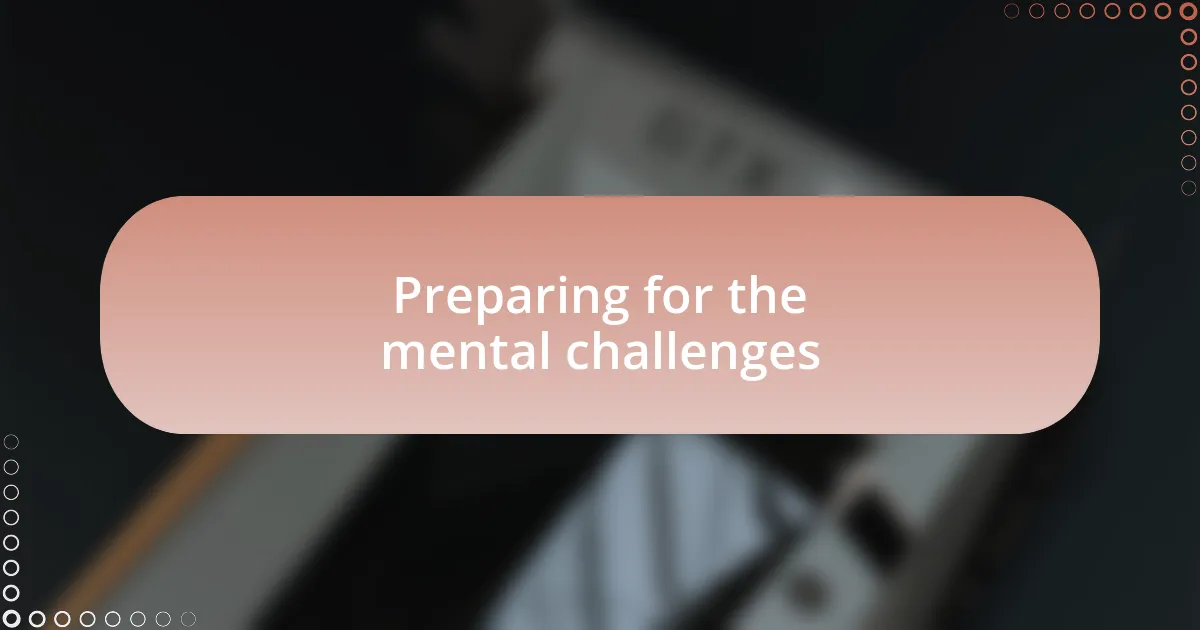
Importance of preparation
Preparation is the backbone of success in eSports. I vividly recall a time when I underestimated my opponent in a tournament match. I thought my skills alone would carry me through, but without proper preparation and strategy, I quickly found myself outmatched. This experience taught me that knowing the game isn’t enough; you need to understand your opponents and develop a game plan that highlights your strengths.
In my journey, I learned that analyzing previous matches is crucial. Watching replays of my gameplay revealed habits that I wasn’t even aware of, such as overextending or misreading situations. Those moments of introspection paid off tremendously; I adjusted my tactics and ultimately saw a significant improvement in my performance. Have you ever noticed how small tweaks can transform your gameplay? That’s the power of preparation at work.
Moreover, it’s all about getting into the right mindset. In the days leading up to major competitions, I found keeping a balance between practice and mental preparation invaluable. I even adopted relaxation techniques to reduce anxiety, which helped me focus better during intense moments in games. When you’re well-prepared, you approach each match with confidence—a feeling that can’t be understated. Don’t you think having that edge can make all the difference?
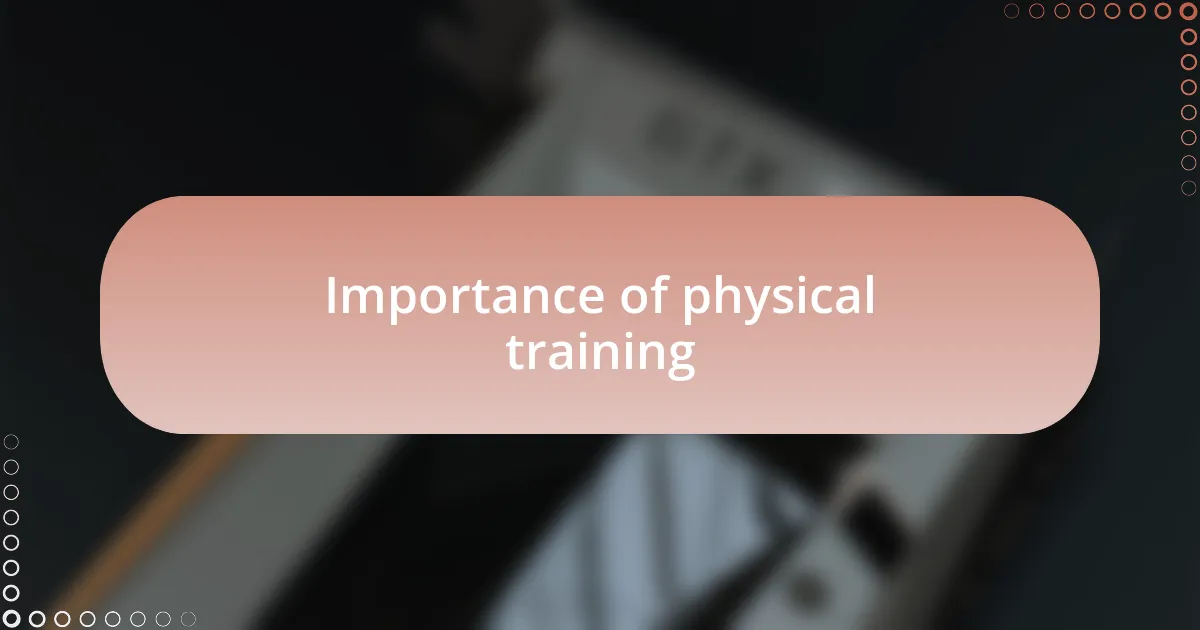
Essential skills for competitors
Competitors in eSports must refine their technical skills, including precise aim, quick reflexes, and strategic thinking. I remember a pivotal moment in one of my matches where my aim faltered under pressure. It hit me hard; the very foundation of my gameplay was built on muscle memory and accuracy. I realized then that routine drills to enhance my aiming and reaction time were not just beneficial—they were essential to my success.
Communication is another critical aspect that often gets overlooked. During team matches, I learned the hard way how silence can lead to confusion and missed opportunities. There was a match where I failed to relay important information about an opponent’s location, which resulted in a swift defeat. This experience underscored for me that effective communication can shift the tides of a match. Have you ever felt the weight of teamwork in high-stakes environments? It truly amplifies the entire gameplay experience.
Lastly, adaptability is a skill I constantly work to improve. In one tournament, the game’s meta shifted drastically just days before our match. I found it challenging to adjust my play style on the fly, but that experience taught me that flexibility is paramount. The ability to respond quickly to new strategies can often be the difference between winning and losing. How do you fare when everything changes around you? For me, embracing change became a core part of my competitive journey.
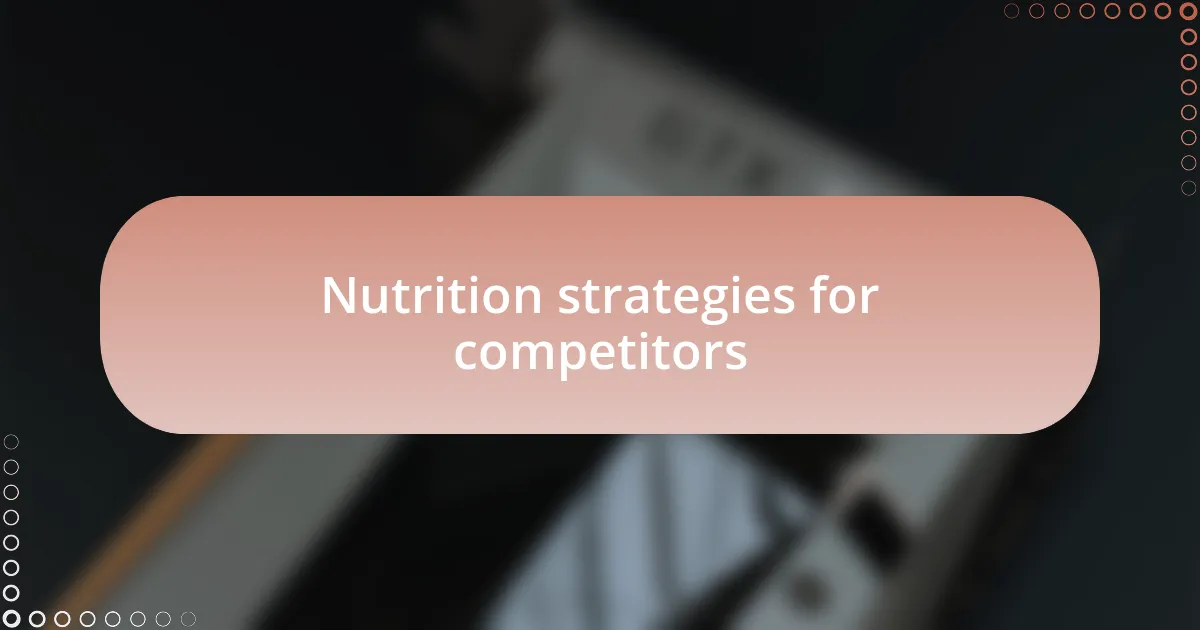
Mental challenges of competition
Competing in eSports often comes with a substantial mental toll that can be harder to navigate than the technical aspects of the game. I remember one tournament where anxiety crept in before the big match. My heart raced, and I couldn’t focus on the strategies we had practiced. This taught me that mental fortitude is just as vital as perfecting my aiming skills. Have you ever felt your mind running wild, drowning out everything else? It’s a challenge that many competitors face, and finding ways to manage it is crucial.
Pressure can sometimes feel like a heavy cloak, especially during high-stakes situations. I’ve had moments when the weight of expectation—both from my teammates and myself—made it difficult to concentrate. In one instance, I was so fixated on not letting my team down that I made unnecessary mistakes. This experience reminded me that it’s okay to step back, breathe, and reset my mental state. What strategies do you have to deal with pressure? For me, developing a pre-game routine helped to center my thoughts and ease the tension.
While working to perfect my skills, I also discovered the importance of resilience. There was a match where we were soundly defeated, and I felt the sting of disappointment. Rather than letting that loss define me, I channeled that energy into analyzing what went wrong and how to improve. With this perspective, I realized that setbacks are part of growth. How do you approach failure in your journey? For me, it became a stepping stone rather than a stumbling block in my competitive experience.

Learning from personal experiences
One of the most profound lessons I learned from my eSports journey was about the value of teamwork. Early in my competitive experience, there was a match where I tried to do everything myself, thinking I was the strongest player on the team. It didn’t take long for the entire strategy to crumble. This taught me that collaboration and communication are not just buzzwords; they are essential components of success in any team-based environment.
Looking back, I realize how important it is to listen to teammates’ perspectives. In one tournament, a teammate suggested a strategy that initially made me uncomfortable. However, trusting their insight led us to an unexpected victory. Have you ever been in a situation where embracing a different viewpoint made a significant impact? I believe that being open to others’ ideas can enrich not only your game but also your personal growth.
Another pivotal moment came after a close match that we narrowly lost. I remember feeling devastated, overwhelmed by what I viewed as a missed opportunity. Instead of dwelling on the loss, I took time to reflect on our performance and sought feedback from my team. This experience underscored how crucial it is to view each setback as an opportunity to learn rather than a dead end. How do you leverage disappointment for growth? For me, it became a valuable lesson in resilience that I carry forward in every competition.
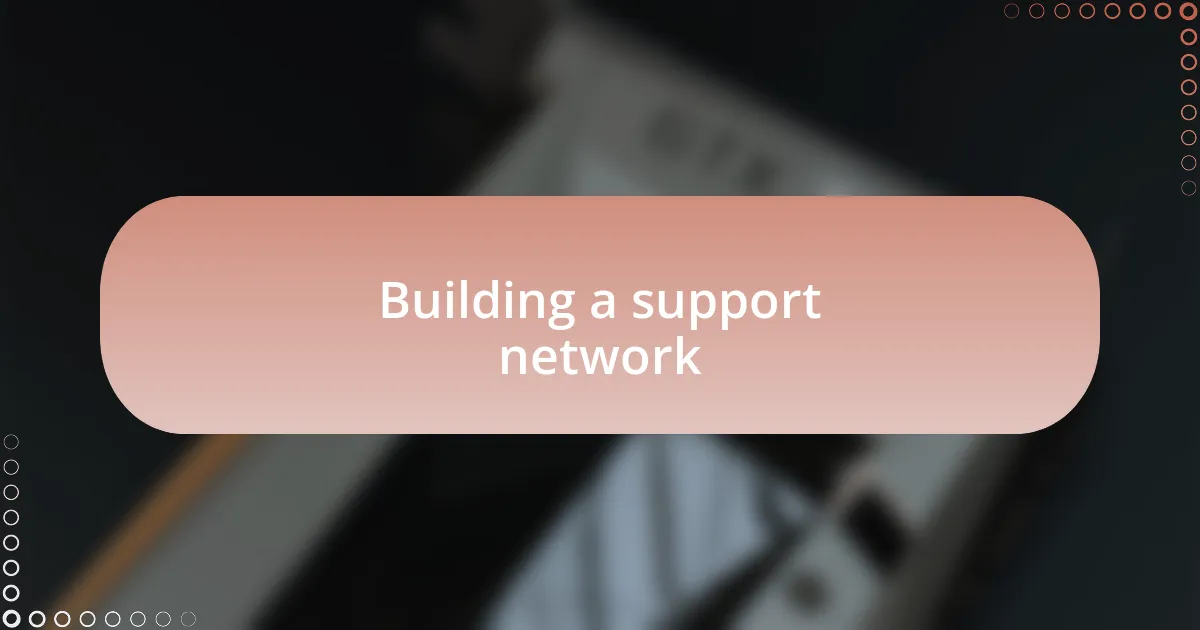
Strategies for improving performance
One effective strategy to enhance performance is honing your individual skills through focused practice. I remember dedicating countless hours to mastering a specific character’s mechanics. By breaking down each movement and ability, I steadily gained confidence and precision, which ultimately transformed my gameplay. Have you ever experienced that moment of clarity after dedicating time to a specific aspect of your game? For me, it felt like unlocking a new level in my abilities.
In addition to individual practice, adapting to feedback is key. During a particularly challenging season, my coach highlighted my tendency to over-aggressively engage. Instead of dismissing the criticism, I took it to heart and worked on my decision-making. I began waiting for the right moments to strike, which often led to more strategic plays and a higher win rate. Have you thought about how constructive criticism can shape your approach? It’s something I’ve embraced to push my game to new heights.
Don’t underestimate the power of mental resilience in competition. There was a tournament where I found myself under immense pressure, feeling the weight of expectations. I started incorporating mindfulness exercises into my routine, which helped ground me during intense matches. Suddenly, I was not just playing; I was truly present in the moment. Can you remember a time when staying calm made all the difference in your performance? For me, learning to center myself has become a crucial advantage.
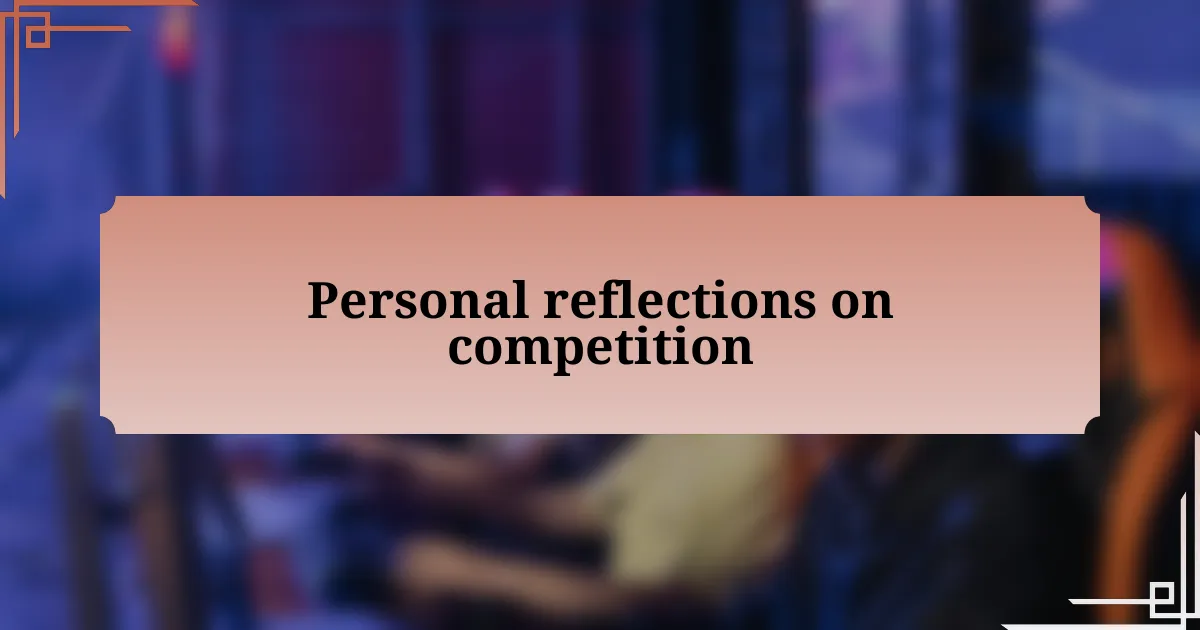
Advice for aspiring players
Aspiring players should prioritize finding a community that matches their passion and goals. Early in my competitive journey, I joined a local gaming group, and the camaraderie we built was invaluable. Have you ever felt that rush of enthusiasm in a supportive environment? Sharing strategies and celebrating victories together not only made training more enjoyable but also held me accountable to improve consistently.
When it comes to competing, understanding your mental state is just as important as refining your skills. I learned this the hard way during my first big tournament; I was overwhelmed by anxiety and self-doubt. It took some time to realize that believing in yourself could shift the tide. What strategies have you implemented to boost your confidence before a big match? I found that visualizing my gameplay helped me enter the arena with a clearer head and purpose.
Lastly, I can’t stress enough the importance of balance. Competing can consume your time and energy, but I discovered that stepping away to enjoy other hobbies recharged my passion for gaming. Have you noticed how taking breaks can bring fresh perspectives? Embracing this balance transformed my approach, enabling me to return to the game with renewed enthusiasm and sharper focus.

